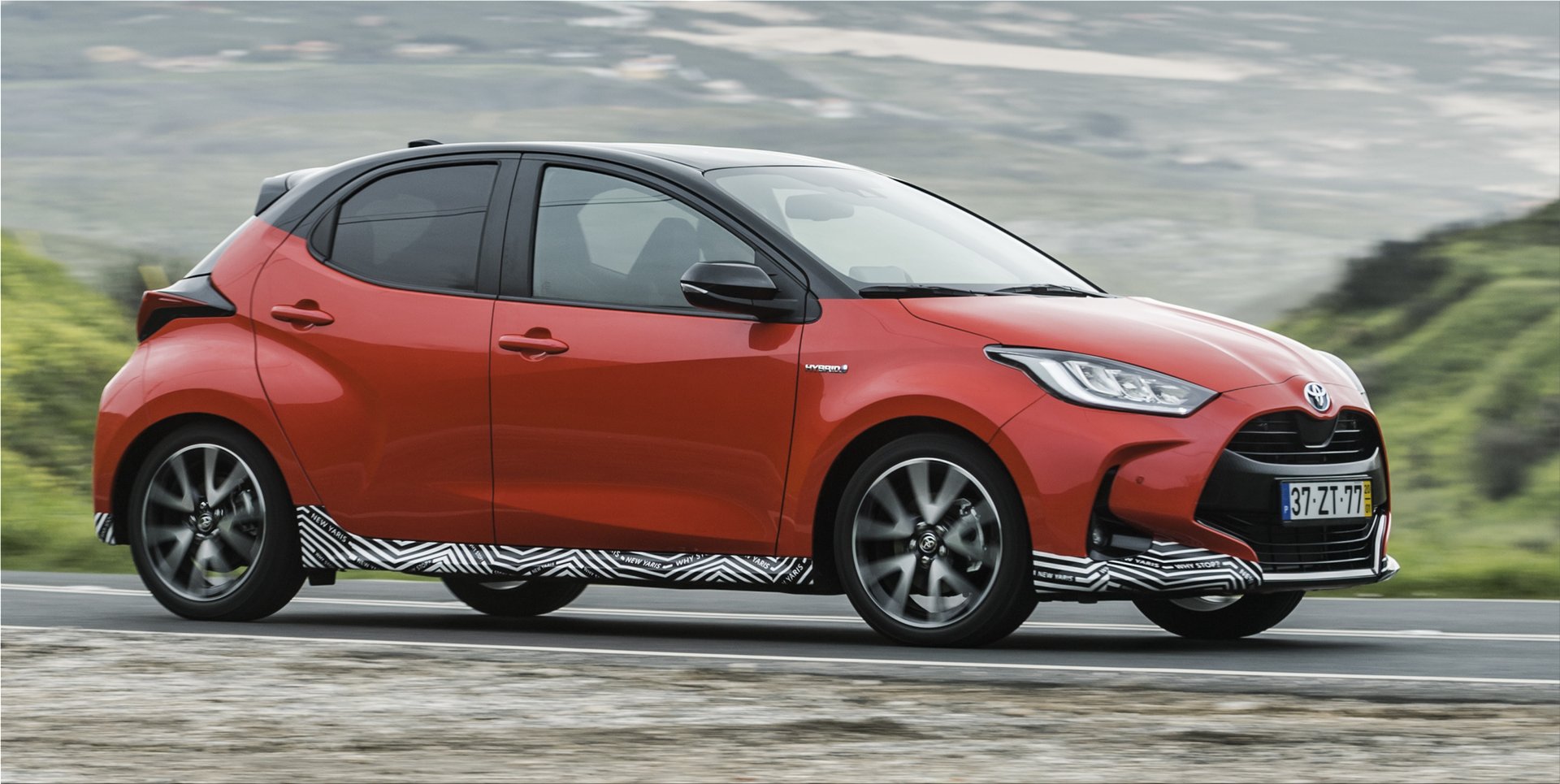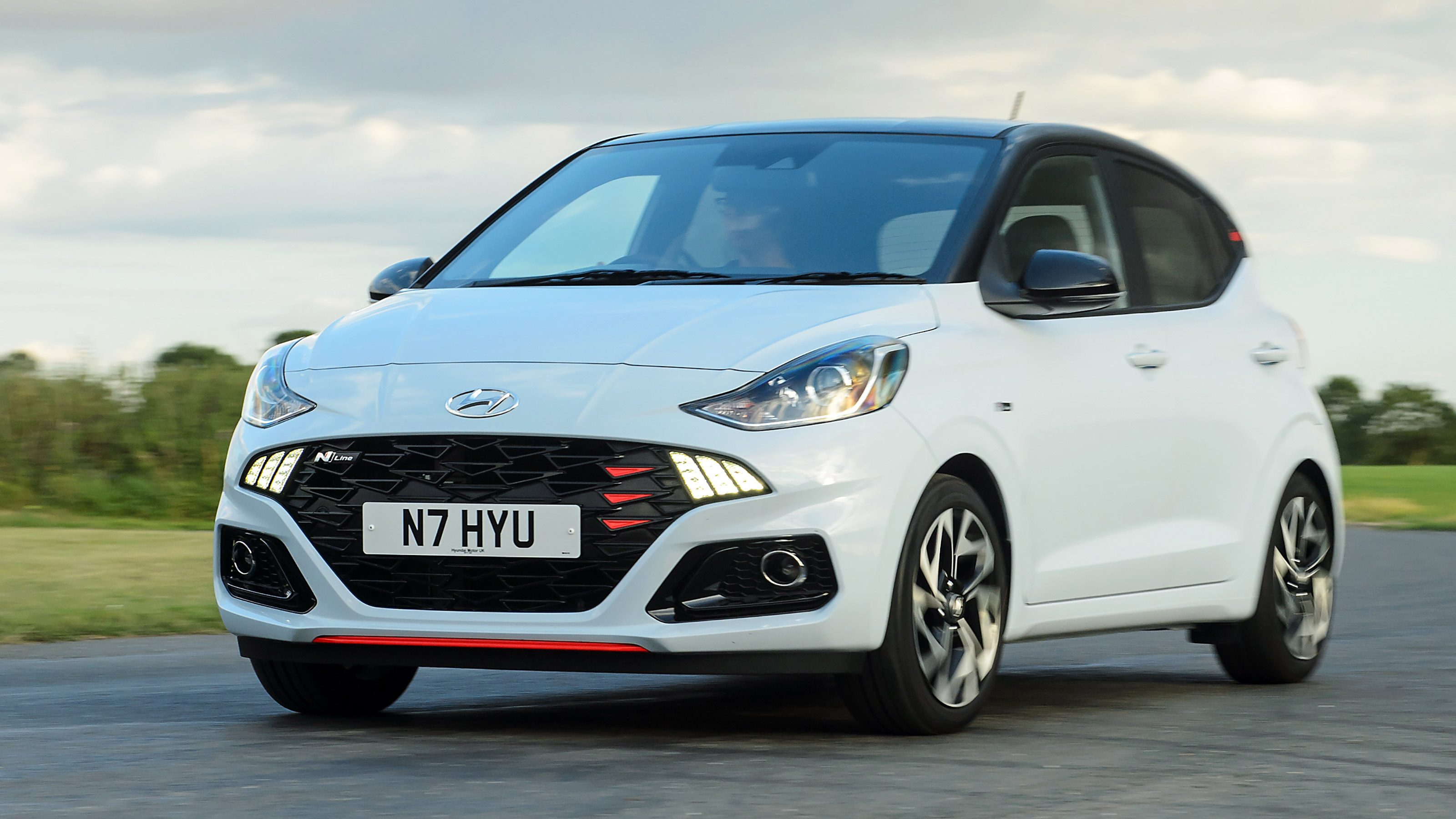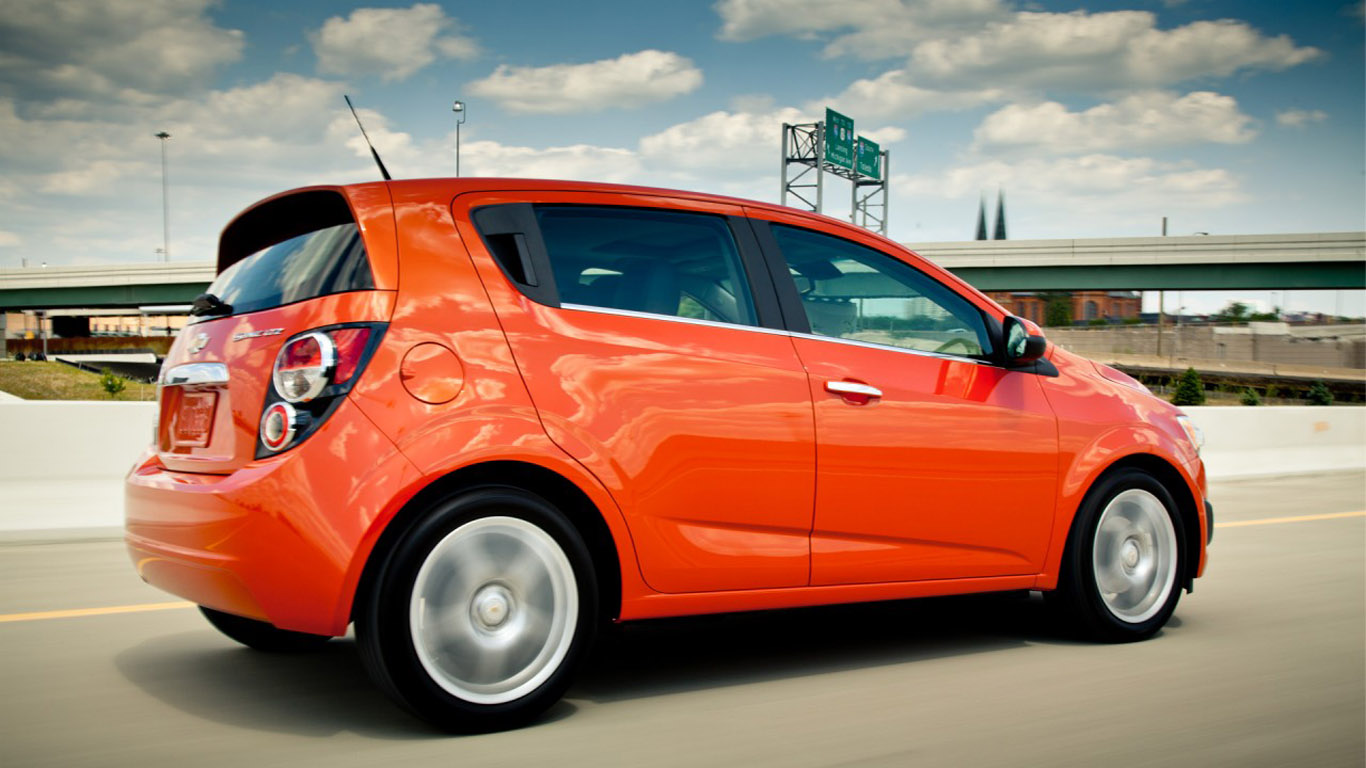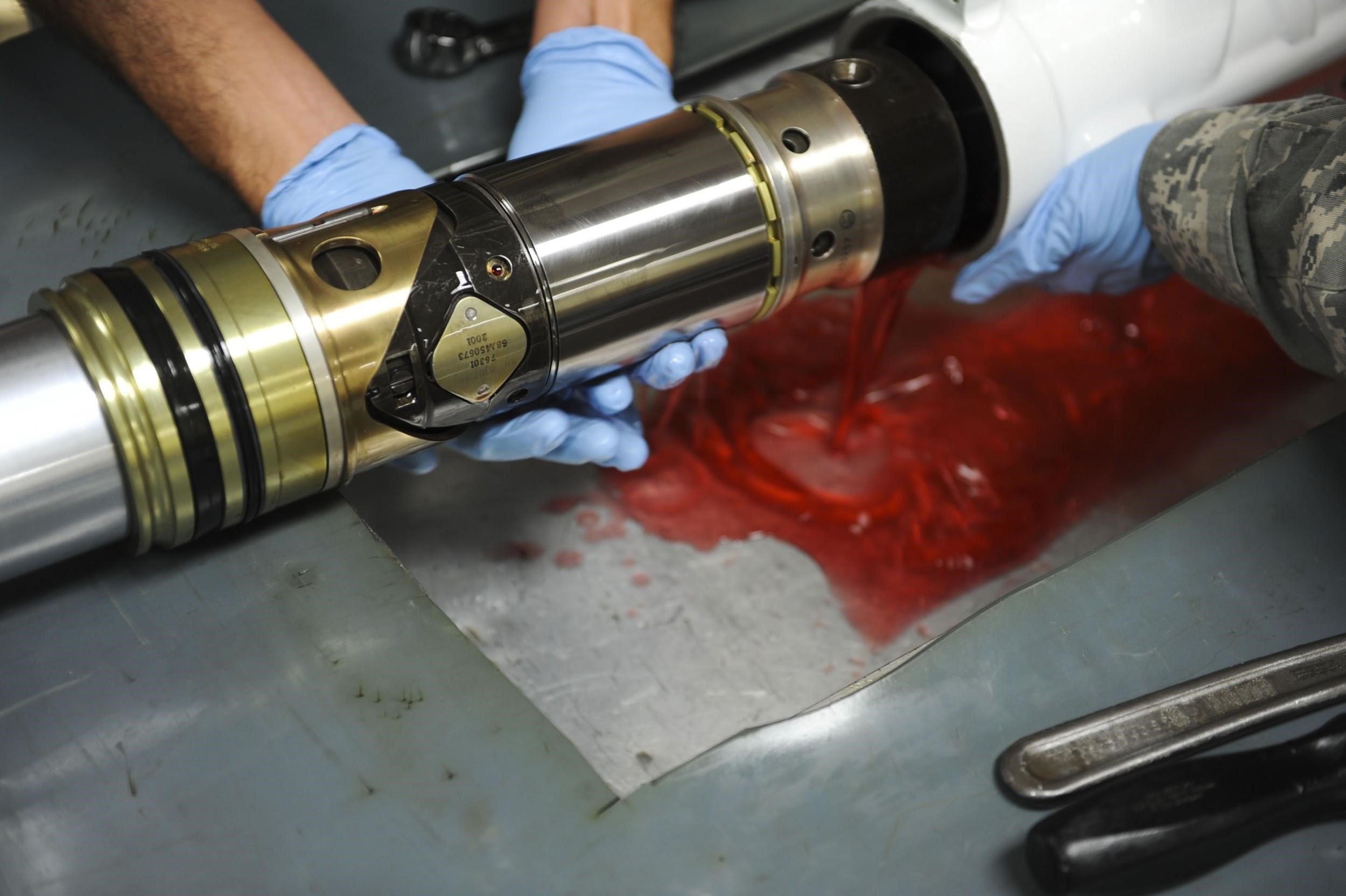Good Small Hatchback Cars

Introduction
In today’s automotive landscape, small hatchback cars have carved out a niche for themselves as versatile, efficient, and often surprisingly spacious vehicles. Offering a harmonious blend of agility in urban environments and practicality for daily commutes, these compact wonders have become a staple for many drivers seeking a balance between functionality and affordability. From bustling city streets to winding country roads, the charm of a well-designed small hatchback lies not only in its diminutive size but also in its ability to deliver a rewarding driving experience without compromising on comfort or features.
One of the primary appeals of small hatchback cars is their agility and maneuverability. Their compact dimensions make them adept at navigating through tight spaces and squeezing into parking spots that larger vehicles would struggle to fit into. Whether darting through congested city traffic or zipping along narrow lanes, these nimble cars offer a sense of confidence and control that can make every journey a breeze. Furthermore, their responsive handling and light steering make them a joy to drive, especially in urban environments where frequent stops and starts are the norm.
Despite their modest size, small hatchback cars often surprise with their interior space and versatility. Clever design and packaging solutions maximize every inch of cabin room, ensuring that passengers can travel in comfort while still leaving ample cargo space for groceries, luggage, or sports equipment. Additionally, many modern hatchbacks come equipped with innovative features and technology typically found in larger, more expensive vehicles, further enhancing the overall driving experience. From advanced infotainment systems to driver assistance aids, these compact cars offer a compelling blend of practicality and sophistication that makes them an appealing choice for a wide range of drivers.

What is the most reliable small hatchback car?
Most reliable small cars
-
Suzuki Swift (2017-present) Reliability rating 99.5% …
-
Toyota Yaris Hybrid (2011-2020) Reliability rating 99.3% …
-
Honda Jazz (2015-2020) Reliability rating 98.5% …
-
Kia Picanto (2017-present) Reliability rating 97.5% …
-
Dacia Sandero (2013-2020) Reliability rating 96.8% …
-
Mini hatchback (2014-present)
Determining the most reliable small hatchback car can depend on various factors such as brand reputation, reliability ratings, and user reviews. However, one contender that often stands out in this category is the Toyota Corolla Hatchback. Renowned for its longevity and dependability, the Corolla Hatchback combines Toyota’s reputation for reliability with a practical and versatile hatchback design. Its efficient engine options, solid build quality, and comprehensive safety features make it a top choice for many buyers seeking a reliable small car.
Another notable option is the Honda Civic Hatchback, which shares a similar reputation for reliability and durability. Honda has long been recognized for engineering dependable vehicles, and the Civic Hatchback is no exception. With its sleek design, spacious interior, and efficient engine choices, the Civic Hatchback offers a compelling combination of reliability and practicality. Its strong resale value and low ownership costs further contribute to its appeal as a dependable small hatchback.
Which car is the king of hatchback?
Which is the king of hatchbacks in India? Maruti Swift, Maruti Wagon R, Maruti Celerio, Maruti Baleno, Tata Tiago, Hyundai i20, and Tata Altroz are some of the kings of hatchback cars in India.
Naming a single car as the undisputed “king” of hatchbacks is subjective and depends on various factors such as performance, design, reliability, and value for money. However, one model that has consistently received praise and admiration in the hatchback category is the Volkswagen Golf. Since its inception in 1974, the Golf has epitomized versatility, practicality, and driving enjoyment. Renowned for its solid build quality, refined interior, and engaging driving dynamics, the Golf has set benchmarks in the hatchback segment. With multiple iterations over the decades, including the GTI and R variants offering enhanced performance, the Golf has maintained its status as a top choice among hatchback enthusiasts worldwide.
Another strong contender for the title of hatchback royalty is the Honda Civic. Boasting a reputation for reliability, fuel efficiency, and sporty styling, the Civic has been a perennial favorite among drivers seeking a blend of practicality and fun. With each generation, the Civic has evolved to meet the demands of modern drivers, offering advanced technology features, efficient powertrains, and a comfortable interior. The Civic Type R, in particular, has earned accolades for its exhilarating performance and track-ready capabilities, further solidifying the Civic’s standing as a premier hatchback option.
Which car engine is powerful?
The biggest engine ever put in a production car is the Bugatti Veyron Super Sport, which features an 8.0-liter W16 engine with four turbochargers and a total output of 1,200 hp (895 kW). This monstrous engine allows the car to reach speeds of up to 267 mph (430 km/h), making it the fastest production car in the world.
Determining the most powerful car engine can be subjective, as it depends on various factors such as the specific measurement criteria, technology advancements, and the intended use of the vehicle. However, one contender for the title of the most powerful car engine is the Bugatti Chiron’s quad-turbocharged 8.0-liter W16 engine. This monstrous powerplant churns out an astonishing 1,479 horsepower, making it one of the most potent production car engines ever created. The Chiron’s engine not only delivers immense power but also showcases cutting-edge engineering prowess, employing advanced turbocharging and fuel injection systems to extract maximum performance.
Another notable mention in the realm of powerful car engines is the engine found in the Koenigsegg Jesko Absolut. Koenigsegg, a Swedish hypercar manufacturer known for pushing the boundaries of automotive engineering, equipped the Jesko Absolut with a twin-turbocharged 5.0-liter V8 engine that produces an incredible 1,600 horsepower on regular gasoline. This engine boasts an exceptional power-to-weight ratio, allowing the Jesko Absolut to achieve mind-boggling speeds and acceleration figures. Koenigsegg’s relentless pursuit of performance and innovation is evident in the design and execution of this formidable powerplant.
Which car has less problems?
According to various industry reports and surveys, car brands such as Lexus, Toyota, and Honda are often recognized for their reliability and low rates of problems and breakdowns over time. These brands have consistently ranked well in terms of dependability, build quality, and long-term durability.
Car has fewer problems depends on various factors such as make, model, year, maintenance history, driving conditions, and individual experiences. Generally, cars from reputable manufacturers with strong reliability records tend to have fewer issues over time. Brands like Toyota, Honda, Lexus, and Subaru are often lauded for their durability and low maintenance requirements. Within these brands, specific models known for their reliability include the Toyota Corolla, Honda Civic, Lexus RX, and Subaru Outback.
Moreover, newer cars often benefit from advancements in technology and engineering, resulting in improved reliability compared to older models. However, it’s essential to note that even within the same model range, individual cars can vary in terms of reliability due to differences in maintenance, driving habits, and other factors. Regular maintenance and proper care also play significant roles in preventing problems and extending the lifespan of any vehicle.

How to choose a second-hand car?
Look for dents, damage, rust and the tyre condition, since you may need to bear the cost of fixing or replacing them later. Especially check if you can spot any recent paint or touch up activity. Under the hood, check that the car still has the original engine. Also, watch out for possible leaks.
Choosing a second-hand car requires a blend of research, inspection, and careful consideration to ensure you’re making a sound investment. Firstly, establish your budget and prioritize your needs: consider factors like fuel efficiency, reliability, space requirements, and intended usage. Research different models that fit your criteria and look into their common issues, maintenance costs, and resale value. Online resources such as consumer reviews, forums, and reliability ratings can provide valuable insights into a car’s performance and longevity.
Once you’ve narrowed down your options, it’s crucial to thoroughly inspect any potential vehicles. Check the exterior for signs of damage or rust, and examine the interior for wear and tear. Test drive the car to assess its handling, acceleration, and braking performance, paying attention to any unusual noises or vibrations. Additionally, have a trusted mechanic perform a comprehensive inspection to uncover any underlying issues that may not be immediately apparent. Don’t hesitate to ask for service records and vehicle history reports to ensure the car has been well-maintained and hasn’t been involved in any accidents or major repairs.
What is the most reliable hatchback?
Toyota Corolla
The Toyota Corolla makes for a great used buy if you want a hatchback that’ll be cheap to run and super reliable. It has a petrol-sipping hybrid system that’s super economical around town, and it’s actually pretty fun to drive too.
Renowned for its longevity and dependability, the Corolla Hatchback boasts a solid track record of reliability over many years. Toyota’s reputation for engineering durable and long-lasting vehicles contributes to the Corolla Hatchback’s appeal to consumers seeking a reliable compact car.
Another contender in the realm of reliability is the Honda Civic Hatchback. Honda has a strong reputation for producing vehicles with excellent build quality and reliability, and the Civic Hatchback is no exception. Known for its efficient engines, durable construction, and low maintenance costs, the Civic Hatchback is a popular choice for those prioritizing reliability in their vehicle selection. With its consistent performance and proven reliability over generations, the Civic Hatchback continues to be a top choice among hatchback enthusiasts.
For those seeking a European option, the Volkswagen Golf Hatchback is often regarded as a reliable choice. Volkswagen has a long history of engineering robust vehicles, and the Golf Hatchback is no different.
Known for its solid build quality, comfortable ride, and versatile design, the Golf Hatchback offers a blend of reliability and driving enjoyment. With a range of efficient engine options and a reputation for longevity, the Golf Hatchback appeals to drivers looking for a dependable and refined hatchback experience. Overall, while opinions may vary, the Toyota Corolla Hatchback, Honda Civic Hatchback, and Volkswagen Golf Hatchback are among the most reliable options in the hatchback segment, offering a combination of durability, longevity, and performance.
What is a small hatchback car?
Put simply, a hatchback is typically a small car which has a raise-open boot that doesn’t stick out the back (like in a saloon car, for example). You can get them in 3-door or 5-door variations – the boot counts as a door too! The term ‘hot hatch’ is sometimes used as well.
A small hatchback car is a compact vehicle characterized by its unique body style, which typically features a rear door that swings upward to provide access to the cargo area. These cars are known for their practicality, maneuverability, and fuel efficiency. Due to their compact size, small hatchbacks are well-suited for urban driving and navigating through tight spaces with ease. They often appeal to individuals or small families looking for an affordable and versatile mode of transportation.
One of the key advantages of small hatchbacks is their versatility and efficient use of space. Despite their compact dimensions, these cars often offer surprisingly spacious interiors with ample seating for passengers and flexible cargo configurations. The rear seats can usually be folded down to create a larger cargo area, making small hatchbacks ideal for transporting groceries, luggage, or other bulky items. This versatility makes them popular choices for urban dwellers or those with active lifestyles who require a vehicle that can adapt to various needs.
Does Toyota make a small hatchback?
Enjoy the compact size, ample cargo space, and easy trunk accessibility with these Toyota’s hatchback cars. Whether you’re hauling camping gear or groceries, keep everything secure and easy to access. Close up front view of a 2023 Corolla Hatchback in the color Blue Crush Metallic.
Yes, Toyota does manufacture small hatchback cars. One of their notable models in this category is the Toyota Yaris. The Yaris has been a popular choice among consumers looking for a compact and fuel-efficient vehicle suitable for urban commuting. With its small footprint, agile handling, and efficient engines, the Yaris has earned a reputation for being practical and reliable. Its hatchback design provides ample cargo space despite its compact dimensions, making it versatile for everyday use.
Another small hatchback offered by Toyota is the Toyota Corolla Hatchback. This model inherits the Corolla’s renowned reliability and efficiency while offering a more sporty and youthful design. Like the Yaris, the Corolla Hatchback boasts a compact size ideal for navigating crowded city streets and fitting into tight parking spaces. It combines practicality with a touch of style, appealing to drivers who prioritize both functionality and aesthetics in their vehicles.
Toyota’s small hatchbacks cater to a wide range of drivers, from young professionals seeking affordability and efficiency to urban dwellers in need of a practical city car. With their reputation for reliability, fuel efficiency, and versatile designs, Toyota hatchbacks continue to be popular choices in the compact car market segment.

Conclusion
Small hatchback cars offer a compelling blend of practicality, efficiency, and affordability, making them an excellent choice for a wide range of drivers. Their compact size makes them ideal for navigating through congested city streets and fitting into tight parking spaces with ease. Additionally, their fuel-efficient engines help drivers save money on fuel costs while reducing their environmental footprint, making them a sustainable option for daily commuting. Furthermore, many small hatchbacks come equipped with advanced safety features and modern technology, providing both peace of mind and convenience for drivers and passengers alike.
Moreover, small hatchbacks often boast versatile interior configurations, with flexible seating arrangements and ample cargo space that can accommodate various lifestyle needs, whether it’s transporting groceries, sports equipment, or luggage for a weekend getaway. This adaptability enhances their practicality, making them suitable for individuals, small families, and urban dwellers seeking a versatile and nimble vehicle for their daily transportation needs. Additionally, the affordability of small hatchbacks, both in terms of purchase price and ongoing maintenance costs, makes them accessible to a broad spectrum of consumers, including students, young professionals, and budget-conscious families.
In essence, small hatchback cars represent an attractive proposition for those in search of a reliable, efficient, and versatile vehicle. With their compact size, fuel efficiency, practicality, and affordability, they offer a compelling combination of features that cater to the needs of modern drivers. Whether it’s navigating city streets, maximizing cargo space, or enjoying advanced technology and safety features, small hatchbacks excel in providing a well-rounded driving experience that prioritizes convenience, efficiency, and value.





